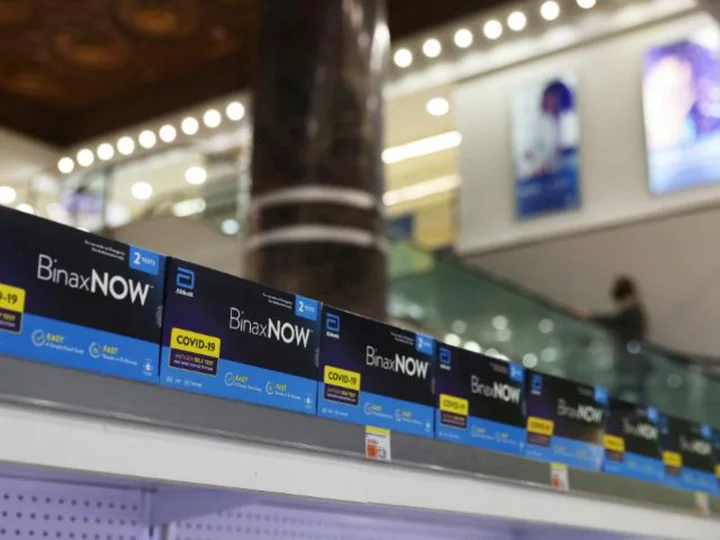After more than three years, the Covid-19 public health emergency in the US is finally ending on Thursday.
While many Americans may not initially notice the sunsetting of the declaration, they are likely to feel it if they come down with Covid-19 or suspect they might have it. They could have to start paying for testing and treatment that they've grown used to being free during the pandemic. A lot depends on what type of health coverage folks have.
Shelling out for tests
Get ready to pay for Covid-19 tests. Though health insurers will continue to cover tests ordered by a medical provider, many policyholders will now face deductibles and copays as part of that coverage.
The median price of a Covid-19 test in an outpatient setting was $45 in 2021, though prices varied widely, according to a new report by KFF, formerly the Kaiser Family Foundation. Hospital-based tests typically cost $51 for an antigen test and $91 for a PCR test.
The recent average price for an at-home rapid Covid-19 test was $11, KFF found.
Varying costs for treatments
Many Americans will have to start paying for pharmaceutical treatments for Covid-19, including remdesivir, an antiviral drug that is generally delivered intravenously.
However, treatment doses purchased by the federal government, such as Paxlovid, are available to everyone at no charge as long as supplies last.
Free vaccines continue
Not much changes immediately when it comes to Covid-19 vaccines because the federal government has purchased all of the current supply and is providing it at no charge to all Americans.
Once that supply runs out, vaccines will continue to be free for most people thanks to the Affordable Care Act and other laws enacted by Congress.
No changes to certain telehealth flexibilities for now
The public health emergency also allowed people to receive prescriptions for controlled substances via telehealth.
The Food and Drug Administration this week announced it is extending those flexibilities for six months.

